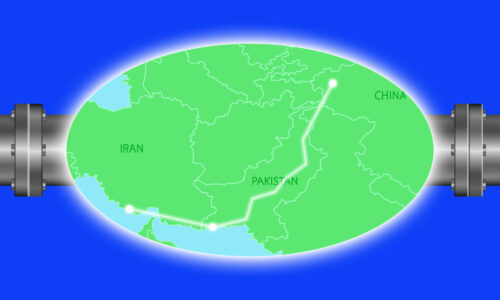Q&A: Dr. Fan Dai on China and climate change
Dr. Fan Dai will speak at The China Project’s fourth annual Women’s Conference, which is slated to take place virtually on September 9 and 10. Prior to the event, we recently sat down with her to talk about questions on China’s climate commitments and its role in international climate collaboration.

Dr. Fan Dai is the director of the California-China Climate Institute, where she leads efforts to facilitate California’s collaboration with China on climate, energy, and the environment. Appointed by Governor Jerry Brown as a special adviser on China, she chaired the state’s China Interagency Working Group, and acted as the state’s liaison on its critical economic and environmental initiatives on China.
Launched in September 2019, the California-China Climate Institute is a groundbreaking initiative led by former California governor Jerry Brown in partnership with Xiè Zhènhuá 解振华, special adviser to China’s environment ministry and formerly its chief climate representative. The primary objective of the organization is to “spur further climate action through joint research, training and dialogue in California and China.”
Dai will speak at The China Project’s fourth annual Women’s Conference, which is slated to take place virtually on September 9 and 10. Prior to the event, we recently sat down with her to talk about questions on China’s climate commitments and its role in international climate collaboration.
The problem of coal
The China Project: In April, the Zimbabwean government announced a plan to build a $3 billion coal power project, with financial and technical support from China. Since then, the deal has been met with fierce opposition from many Zimbabwean civil society organizations and local activists, who lambasted China for breaking its promise to make the Belt and Road Initiative “green and clean.” Do you think the construction of the massive coal power plant in Zimbabwe is indicative of China’s broader plan to fund more coal projects across Africa, despite the environmental and health risks that they might pose to local populations? Is there anything that can be done to ensure China lives up to its promises of promoting sustainable investment overseas, especially in BRI signatory countries?
Dr. Fan Dai: These news about BRI investments advancing coal power plants are concerning. There are certain ways we can help China in greening its overseas investment, including establishing criteria of climate-resilient investment in its BRI projects, as well as working with the signatory countries on a mechanism to make the decision-making process more transparent.
The China Project: According to a recent report by Global Energy Monitor, there was a resurgence of coal plant development in China in the first half of 2020, during which time the country built more than half of the world’s new coal-fired power plants. After several years of restricting new coal-burning power plants, what do you think are the primary factors that drove the new coal boom in China?
Dai: China’s transition to the decarbonized energy sector is not going to be linear — there are several factors contributing to this increase of coal power plants. I’d offer my opinion on one basic factor — cost. It is clear that the cost of renewable energy has been on a declining curve in the past decade. However, switching from coal to renewable needs the whole power sector to take action, not just the generators (coal power plants), but rapid adoption of large-scale energy storage, which adds to the total cost of power. The electricity pricing in China is different from markets like Australia and North America, countries that allow arbicharge and where the cost of storage are being absorbed by the market itself.
Public awareness of climate change
The China Project: Beyond government-led initiatives to tackle climate change, Chinese people seem to have little individual concern about environmental issues. What’s your impression of public awareness on climate change in China? How to effectively convince Chinese individuals to take action to help fight climate warming?
Dai: Air quality is still the primary environmental concern in China, compared with climate change and other environmental problems. There have been some recent studies connecting the benefits of cutting GHG emissions and combating air pollution, which I think has been a good example to educate the public about the importance of dealing with these issues. Another is the more frequent and catastrophic extreme weather events like flooding and drought. I think China can do a better job in relating these climate disasters with global warming and improve the public awareness of it.
Renewable energy in China
The China Project: Despite economic fallout from the COVID-19 pandemic, Chinese investment in utilities from January to March was 14% above the same period in 2019. The increase in spending has made China’s renewable energy sector optimistic about building more installations in the future. What’s your opinion on the future of renewable energy in China? What are some of the biggest challenges faced by China in its efforts to become more sustainable?
Dai: I think China has the biggest renewable market in the future. The biggest challenges are making the renewable industry less dependent on government subsidies.
The China Project: Climate change is a global issue that requires an international collaborative effort. How do you picture China’s role in tackling global climate change? In what areas can China and the U.S. cooperate on green technologies?
Dai: China demonstrated its leadership in the Paris Agreement and has shown its interest in continuing its leadership role in global climate governance. By working together, the U.S. and China have led the success of the Paris Agreement in 2015. In the future, the world still needs the two countries taking charge for resolving a global problem. In addition to policy collaboration, there needs to be less restrictions in investment, R&D, and deployment of clean technologies in the U.S.-China cooperation.





